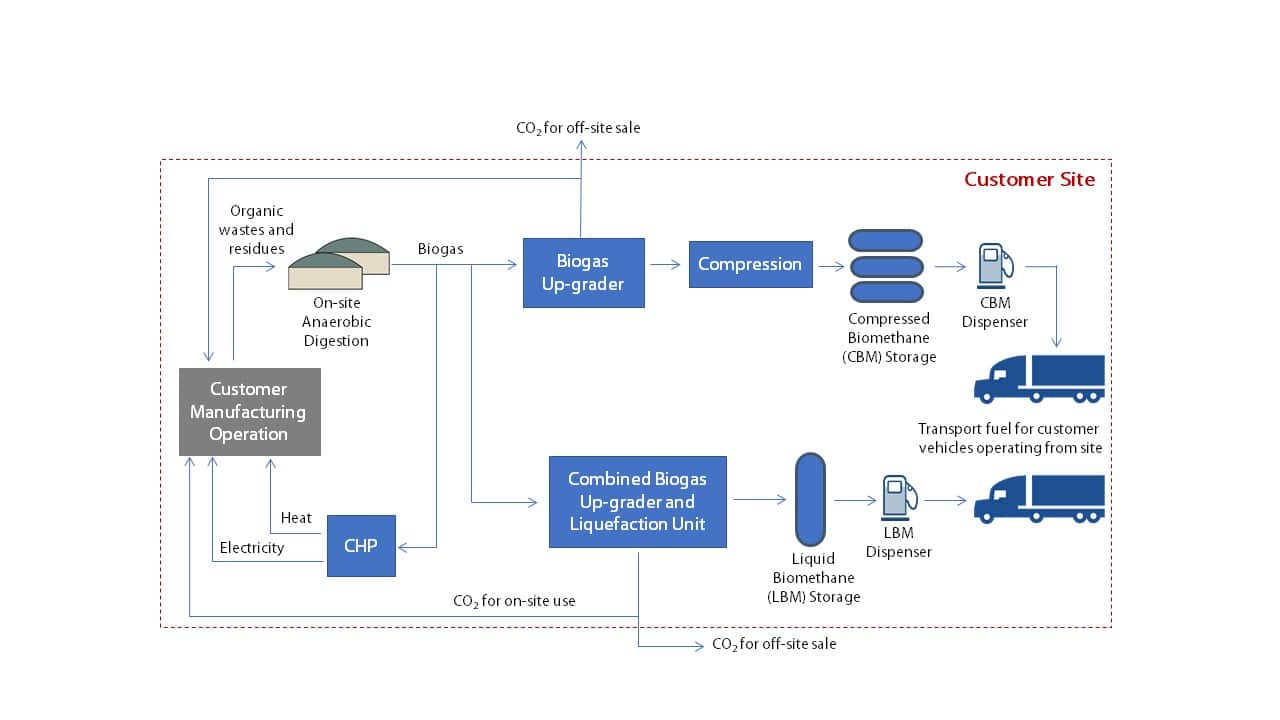After the success of their Anaerobic Digestion Workshop, Carbogenics are thrilled to announce they are…

MEMBER’S PRESS RELEASE: Greening commercial transport: biogas’ potential as HGV fuel
New research shows that biomethane generated from food and drinks process residues has growing potential as a low-carbon alternative to diesel used in commercial vehicles. The study was carried out by Aker Associates Ltd for Clearfleau Ltd, the leading provider of on-site bioenergy plants for food and beverage processors. The results will be presented at the UK AD & Biogas and World Expo 2017 in Birmingham today (July 6th).
The report focuses on the use of biomethane for transport (BfT) technology in the commercial vehicle market, assessing drivers for change and barriers that may inhibit wider adoption of biomethane in commercial vehicles. Also, its potential use with on-site Anaerobic Digestion (AD) plants on industrial sites – a sector in which Clearfleau is a leading provider.
The report’s author, Andrew Winship of Aker Associates, said:
The pressure is on both government and business to reduce carbon emissions from transport, which lags behind other sectors in the adoption of renewable fuels. This requires new and innovative solutions. We expect to see growing numbers of food and drink processing companies looking to use this technology, which offers a low-carbon alternative to diesel for fuelling their commercial vehicle fleets. With both suitable vehicles and fuels becoming more available, supported through legislation and tax treatment, biomethane as a low-carbon transport fuel is set to grow substantially.
Diesel is currently the dominant fuel for commercial vehicles but companies are under social, political and environmental pressure to find low-carbon renewable alternatives. And with diesel prices forecast to rise further, the economic argument will become more compelling. Since electric vehicle technology is not viable for large HGVs, gas-powered vehicles are becoming more popular with their efficiency and performance also improving.
BfT technology is particularly appropriate for the dairy sector, as creameries use vehicles to collect raw milk from local farms and bring it to their sites for processing. Clearfleau’s unique approach provides a circular economy solution, enabling collection and delivery trucks to be powered by biomethane generated on site from the by-products of making cheese.
More food manufacturers and distilleries are looking at on-site solutions for their byproducts and residues, using biogas generated in Combined Heat and Power (CHP) engines or boilers. However, the recent decline in Feed-in Tariff (FIT) and Renewable Heat Incentive (RHI) rates mean that using biomethane as an alternative fuel to diesel is becoming more economic, with support through the government’s Renewable Transport Fuels Obligation (RTFO).
Also speaking at the Biogas Expo, Richard Gueterbock, Marketing Director of Clearfleau, said:
Using process residues to produce biomethane for transport fuel on factory sites is a perfect example of the circular economy in action. Clearfleau has a proven track record of delivering our on-site digestion technology for processing residues and byproducts and we’re excited that we can now offer clients an alternative use for the clean biogas they generate. Our report will help to stimulate greater interest from the food industry and other stakeholders.
The research indicates that more should be done by Government working with industry to stimulate investment and promote the use of cleaner biofuels in the commercial transport sector, including the classification of biomethane as a development fuel in the revised RTFO.
Currently the return on investment could be circa 14%, varying according to whether the gas is supplied as Compressed or Liquid Biomethane, the level of incentives and other site-specific factors. With ongoing improvements in engine technology and greater interest in the supply of low-carbon fuels from residues, returns in the vehicle fuel sector should compare even more favourably to the on-site generation of electricity in the more widely used CHP engine.
To download a summary of the report, please visit http://clearfleau.com/summary-of-report-on-biogas-for-commercial-vehicle-fuel-july-2017/




